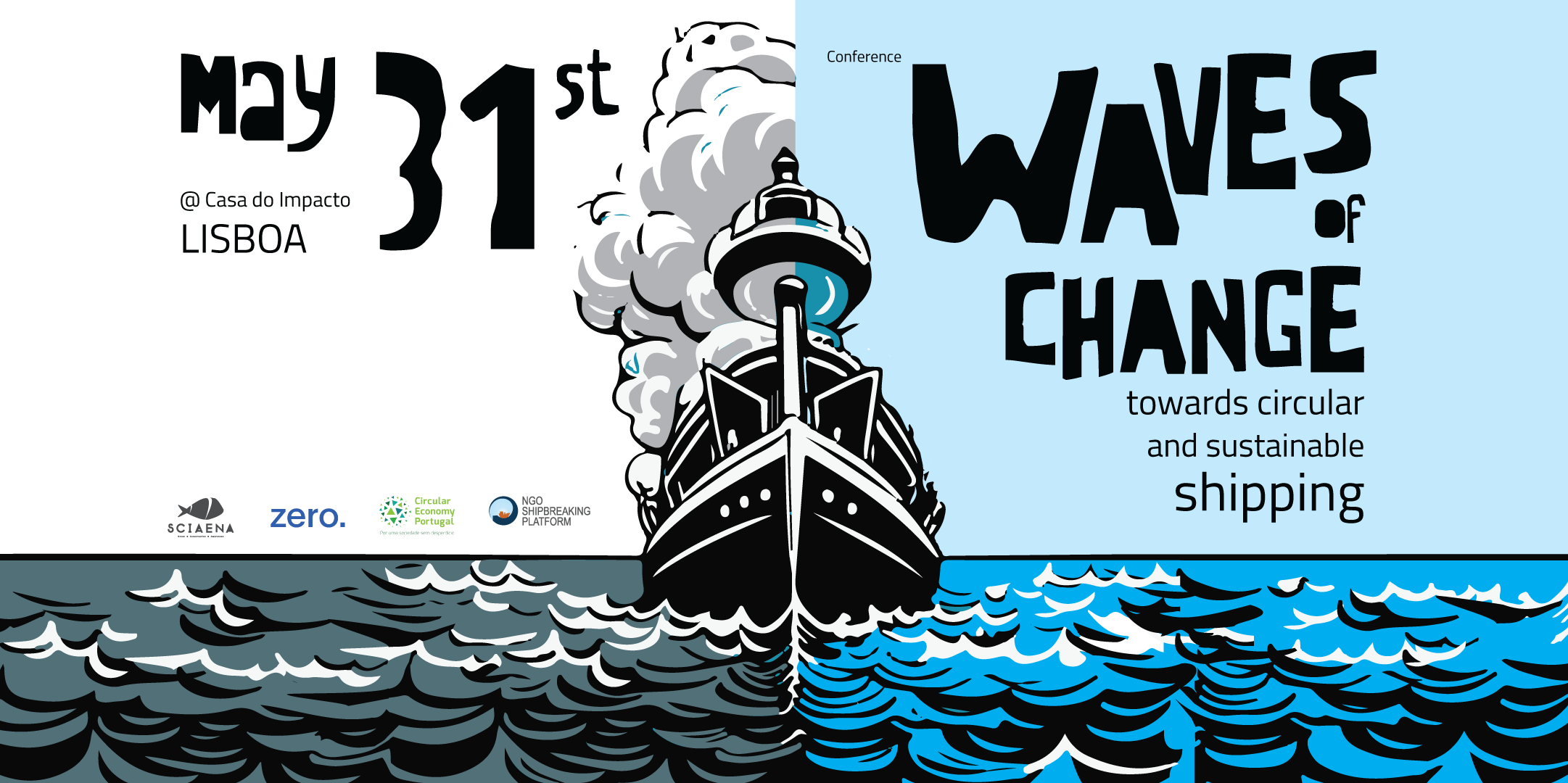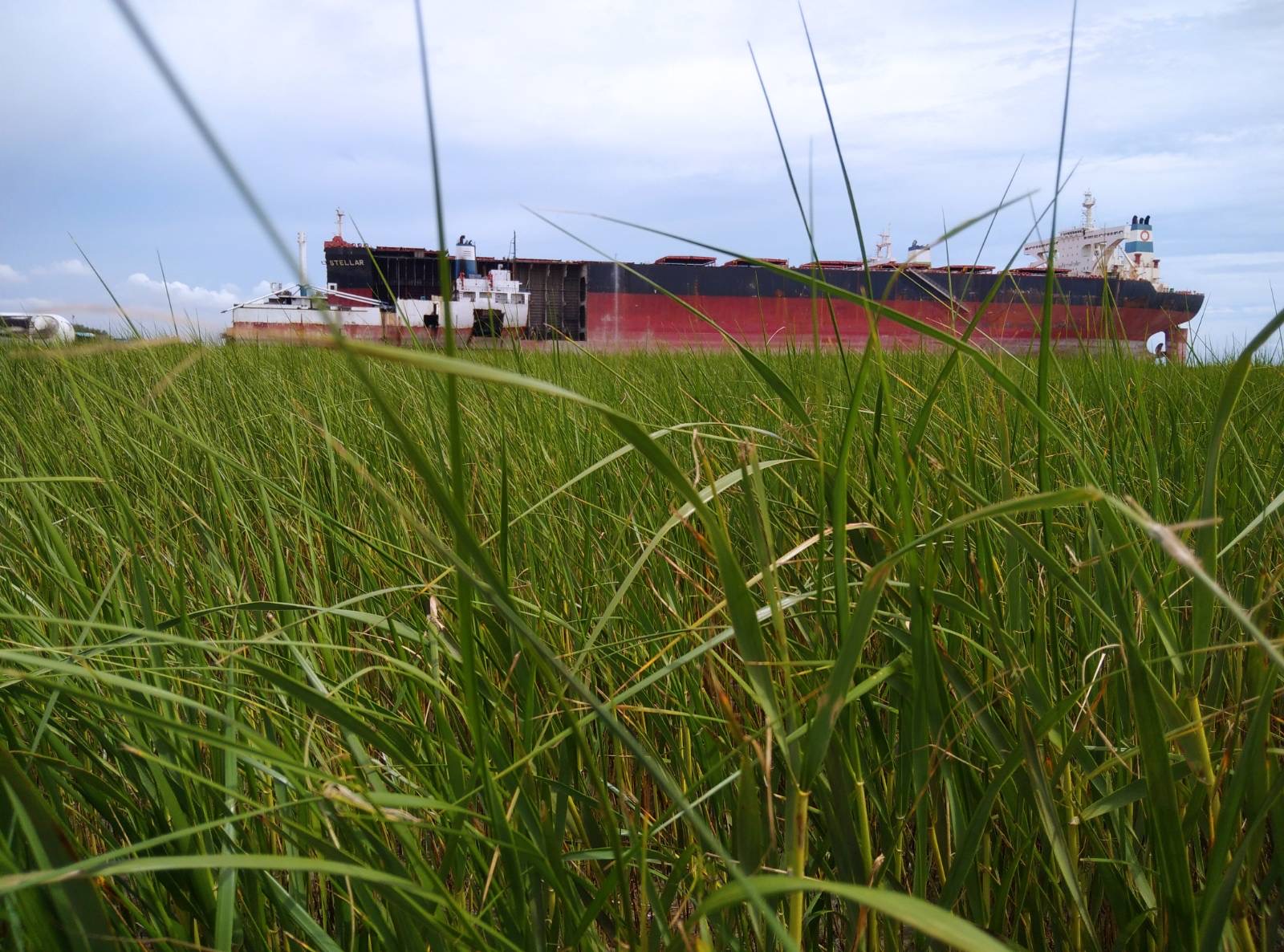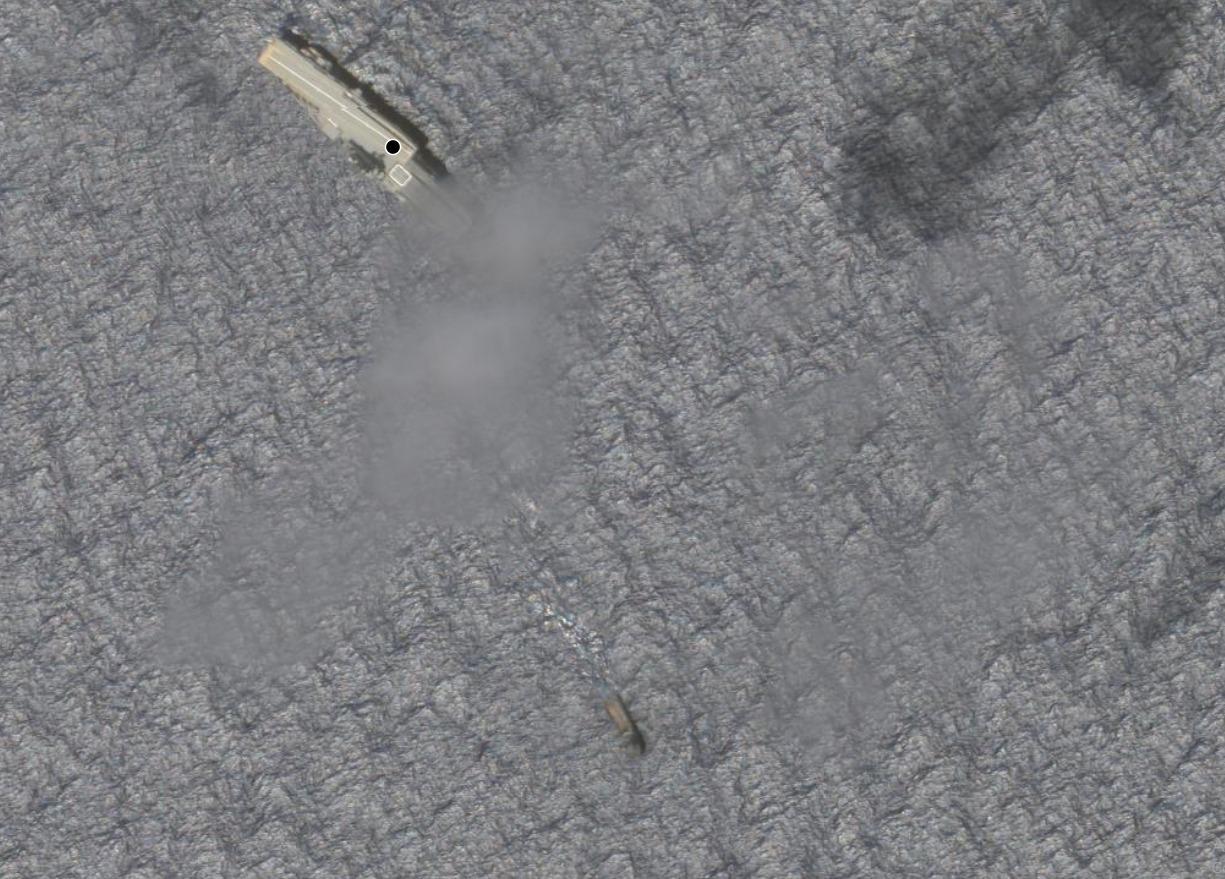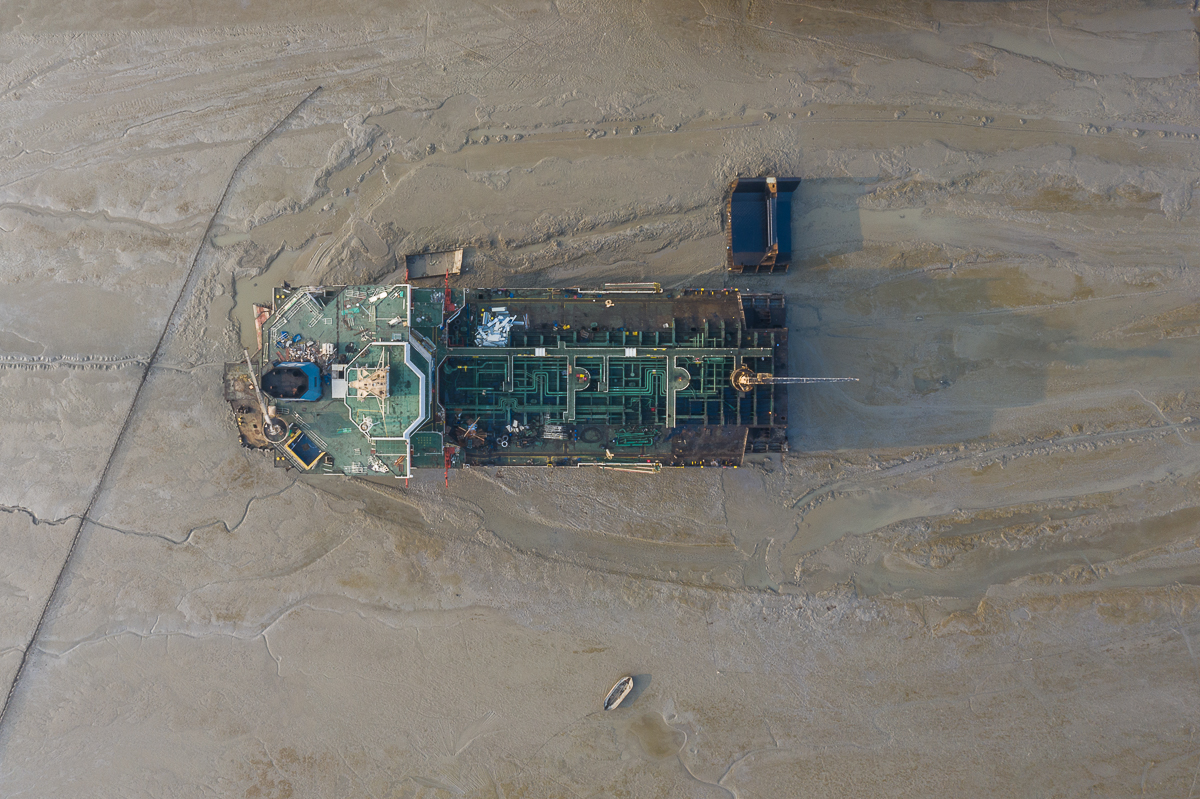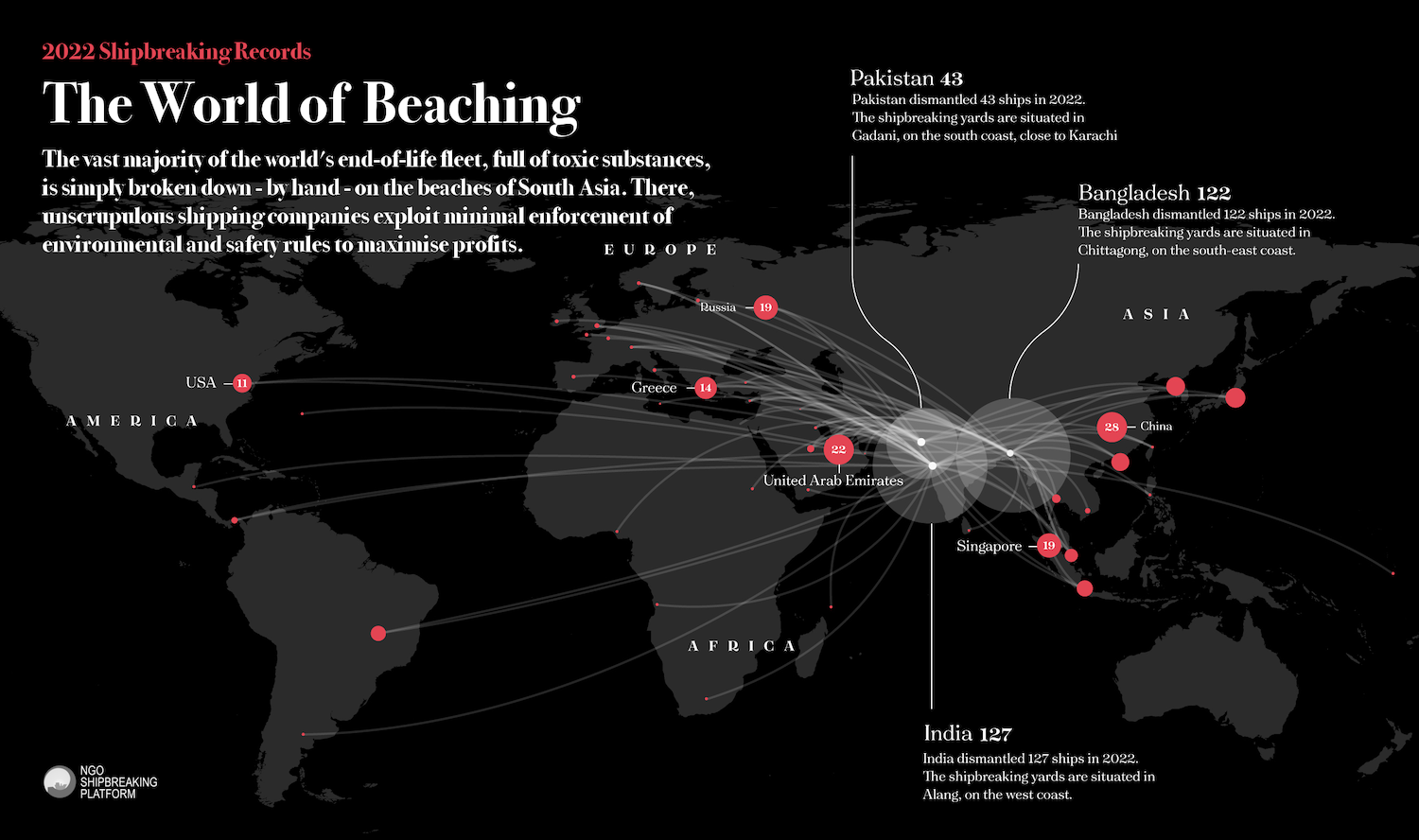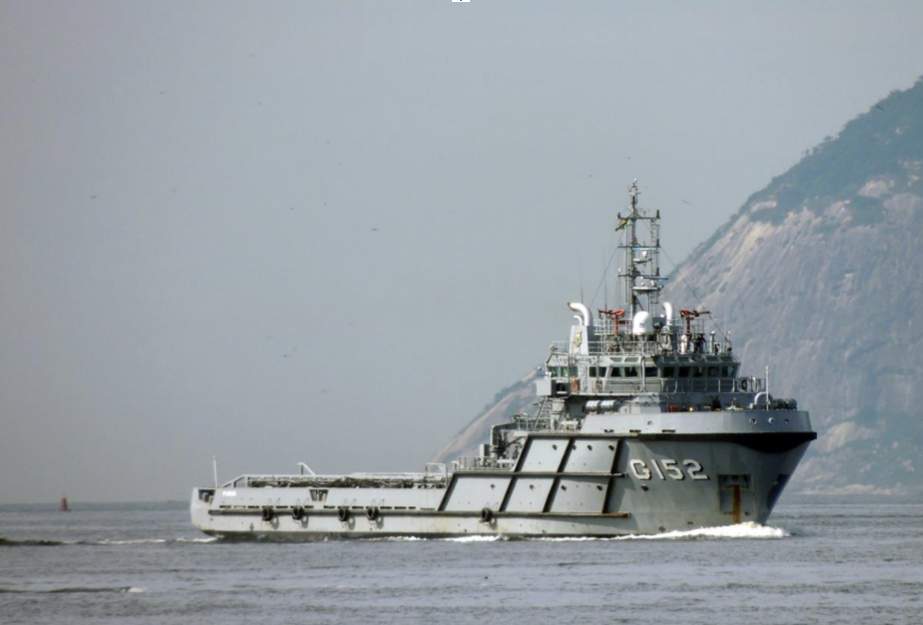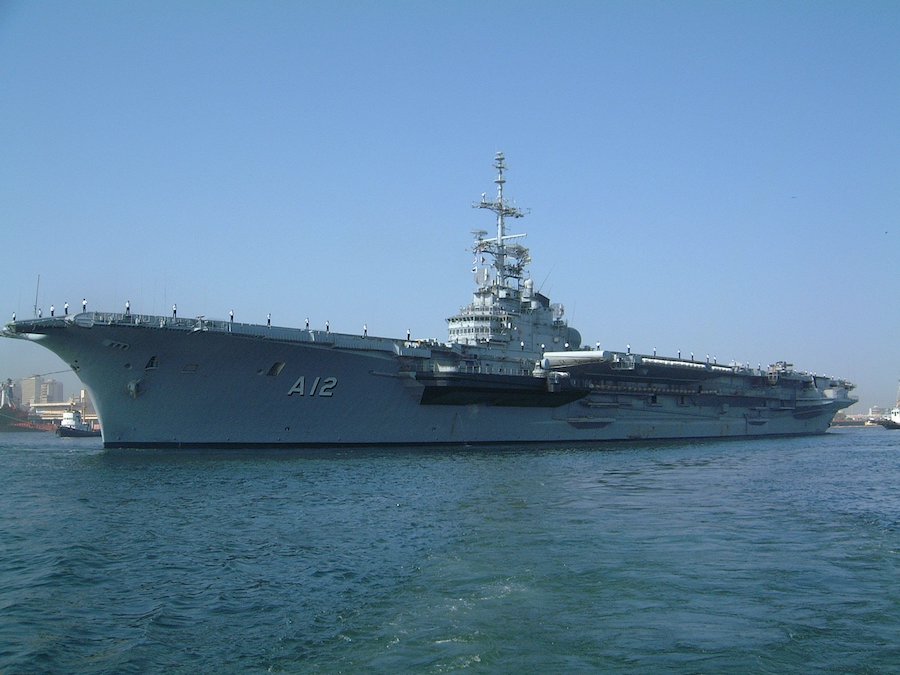On 31 May, between 2PM and 7:30PM, the NGOs ZERO, Sciaena, NGO Shipbreaking Platform and Circular Economy Portugal are organising the conference “Waves of change: towards circular and sustainable shipping" at Casa do Impacto in Lisbon. The international event will focus on the sustainability and circularity of the maritime sector, focusing on the entire ship’s life cycle.
Regulating shipping currently presents the greatest challenges on the path to decarbonisation of the transport sector. Truly sustainable approaches, encompassing circular economy principles, need to be applied to guarantee positive changes, such as a lower demand for raw materials, a global improvement in air quality, the prevention of the spreading of invasive species, and the reduction of noise pollution. Stakeholders representing civil society, industry and public bodies will prompt a constructive debate on these topics, highlighting various holistic solutions for the future of maritime transport.
The event will be held in English and will include three panel discussions on ship design and ship building, ships’ operations and ship recycling, and a networking session. Registration is free, but mandatory through the link available here. Virtual attendance is not possible.
Contacts
Carolina Silva (ZERO) - +351 961077412
Ana Matias (Sciaena) - +351 915684976


